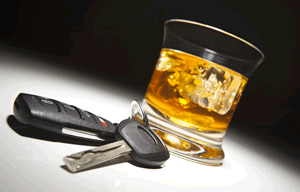What are the fines and penalties for a DUI arrest?
Gone are the days when you may have received a "slap on the wrist" for a DUI conviction. Due to increased pressures on state legislatures from groups such as MADD (Mothers against drunk driving) and other powerful lobbying groups, strong DUI laws have been passed in every state.
Refusing to take chemical tests and not cooperating with the police is also no longer recommended. Years ago attorneys often told their clients to refuse all chemical testing, but state legislatures have also passed severe penalties for DUI test refusals. This means if you refuse a chemical test you may face a license suspension for up to one year. In some states, the administrative license suspension can be more punitive than if you were actually convicted of DUI.
So what kind of DUI fines and penalties can you expect after a DUI arrest? It's difficult to give a concise answer because state laws vary. For instance, in California for a first time DUI conviction you can expect to serve 4 days to six months in jail, pay fines of $1400 to $2600, and have your license suspended for 30 days to 10 months. In Texas, however, the first time you are convicted of DUI you can expect to serve 3 days to 180 days in jail, pay fines up to $2,000 and have your license suspended for 90 to 365 days. Penalties can increase for every subsequent DUI conviction. They also can increase if you are arrested for DUI and a child is in the car.
States also have different look back periods, which is the amount of time the state will look back to consider previous DUI convictions when they are assessing DUI penalties. Some states have five year look back periods, some states have ten year look back periods, and other states have life-time look back periods. In a state with life-time look back laws, if you are arrested for DUI and then 20 years later you are arrested again, the second DUI arrest is considered your second, even though it happened twenty years later.
What do you do after you are arrested for DUI? There is no need to panic, but there is reason to consult with a good DUI lawyer. Find out your state laws, and talk to a lawyer about whether or not the state has sufficient evidence to convict you for drunken driving.
Related Pages
Previous Question
Top 5 things to know about DUINext Question
What are the steps after a DUI arrest?Latest Question
Prenuptial agreement when can it be disregarded?
Prenuptial agreements are generally enforced but they can be disregarded if certain conditions are met.Category: Divorce


